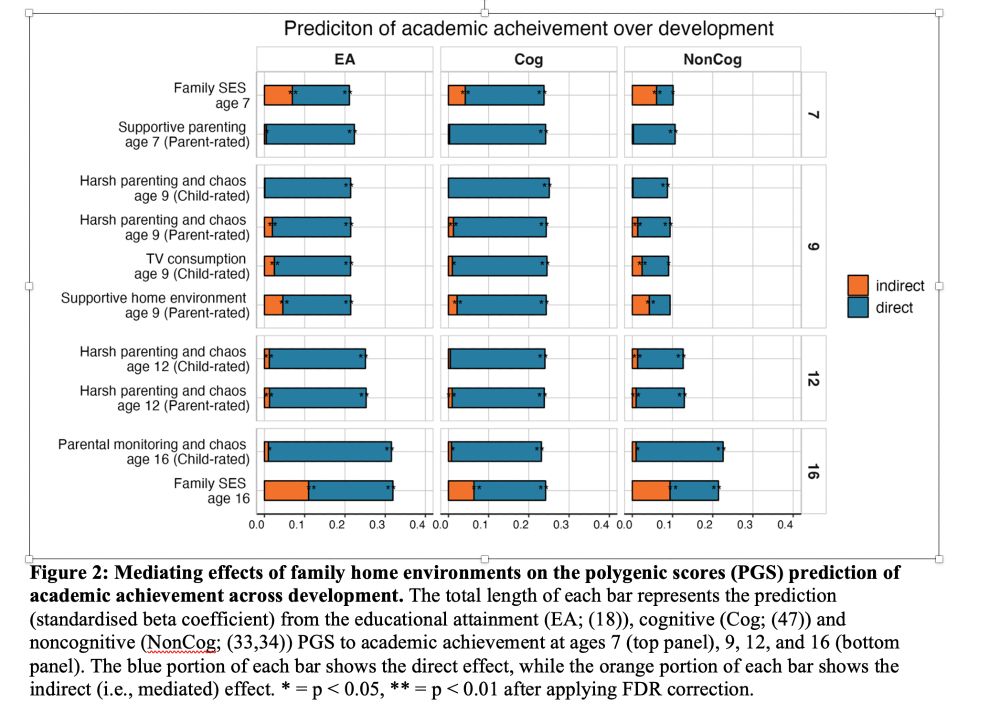

3️⃣ Associations increased across development and varied for different cognitive skills.

3️⃣ Associations increased across development and varied for different cognitive skills.
1️⃣ The relationship between psychopathology and cognitive functioning is primarily driven by disorder-specific genetic effects, rather than by transdiagnostic factors.

1️⃣ The relationship between psychopathology and cognitive functioning is primarily driven by disorder-specific genetic effects, rather than by transdiagnostic factors.
A short thread summarising the study👇

A short thread summarising the study👇






